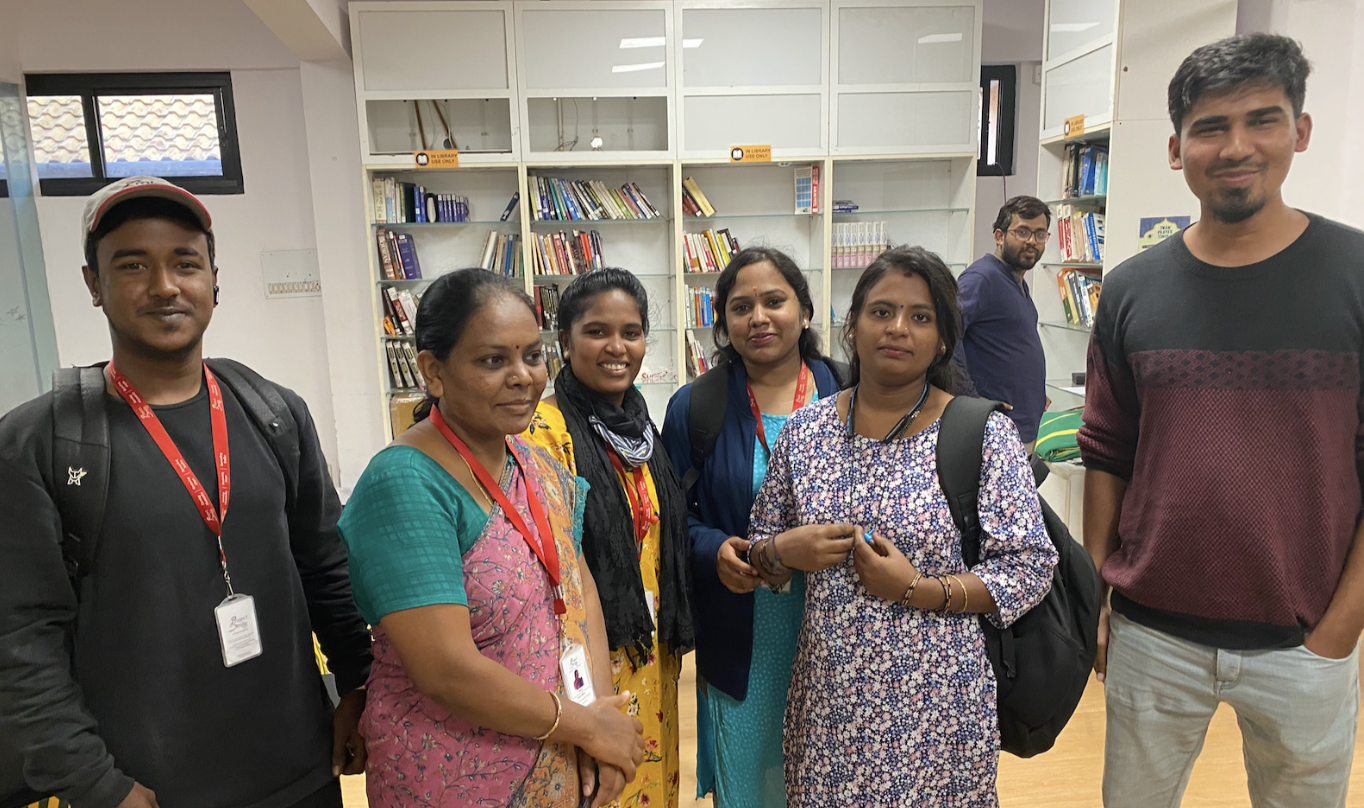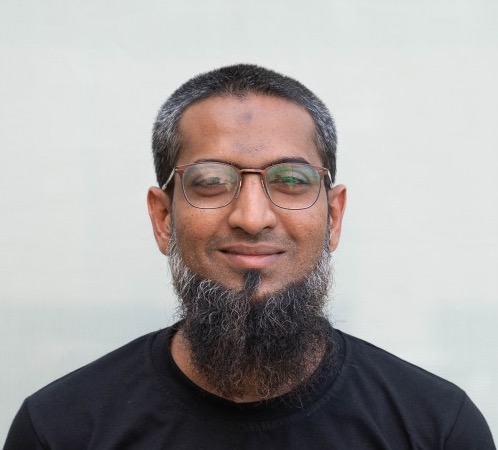Pushpa was on her way home, after just another hectic day at work. She witnessed a man sitting on the pavement, drenched in the rain. He was shivering due to the cold. Pushpa approached her and said, "Appā, nīnu cennāgiddīyā" (father, are you okay?). The man resisted talking to a stranger and didn't open up. Pushpa touched his forehead. The elderly person was suffering from high fever.
Pushpa offered a few packets of biscuits and a blanket to the ill guy. Seeing the gesture, a man had an emotional outburst. Pushpa kept consoling him, and ensured that she cloud assist with more. A man finally opened up and revealed his identity.
The elderly individual was an engineer who once worked for a space research agency!
Homeless people come from different demographics, and each one has a gut wrenching story. You meet individuals who were once proud family members, professionals like teachers, optometrists, daily wage laborers (majority of individuals). An additional majority of them are also alcoholics who were abandoned by their very blood relatives. And then you have entire families who have been on the streets for a generation.
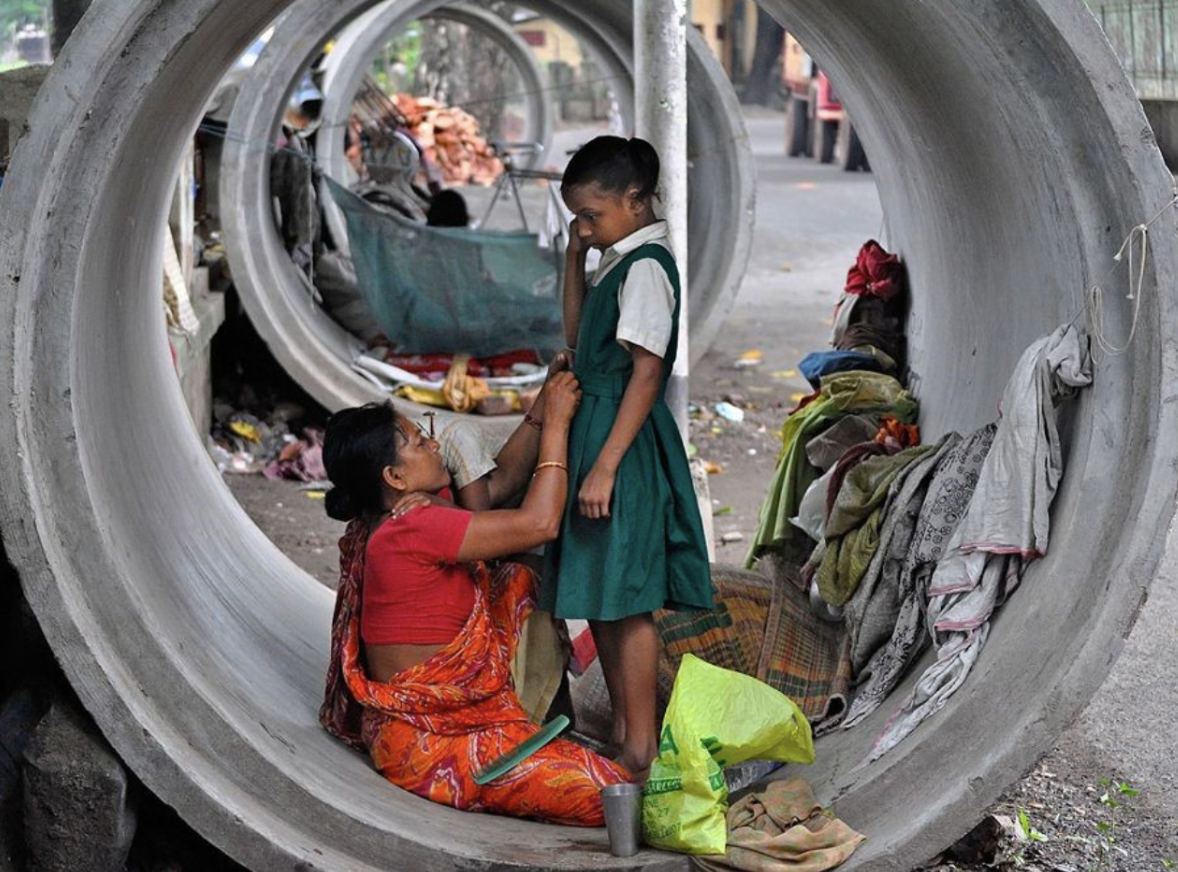
Image credit: Kamla Foundation
Project Smile
Remember Pushpa taking out the blanket and biscuit packets from her bag and offering it to an engineer? These essentials were provided by a Project Smile, NGO called SmileCare which helps the homeless and needy. Pushpa (and many other people on their ground team) work for Project Smile. They offer essentials like free meals, clothing and medical service, to the needy. SmileCare Foundation rescues homeless people, and shifts them to hospitals or shelter homes. They also provide scheduled social service to homeless people like:
Short term
- Feeding homeless people twice in a day
- Reporting rescue cases
- Hospitalisation
Long Term
- Medical camps
- Homeless to shelter homes
- Entitlements
- Re-unite with the family
- Awareness camps
Azim Premji Foundation
Azim Premji Foundation is one of India’s largest philanthropies. They fund hundreds of NGOs just like the SmileCare foundation. Other NGOs being funded by them work on different causes such as Migrant Labour Helpline, Farmer Helpline, estranged kids rescue to list a few.
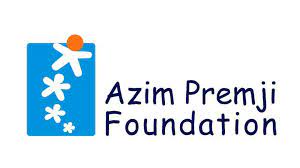
As a sponsor, Azim Premji Foundation needed a console to track the campaigns being driven by their NGOs and measure its effectiveness. This is how Frappe came into the picture. The Azim Premji Foundation's technical team discovered Frappe Technologies, and approached us to study how NGOs operate. The task was to provide a platform which would be used by the NGO team, which the Foundation's team could consolidate on the parent level and analyze.
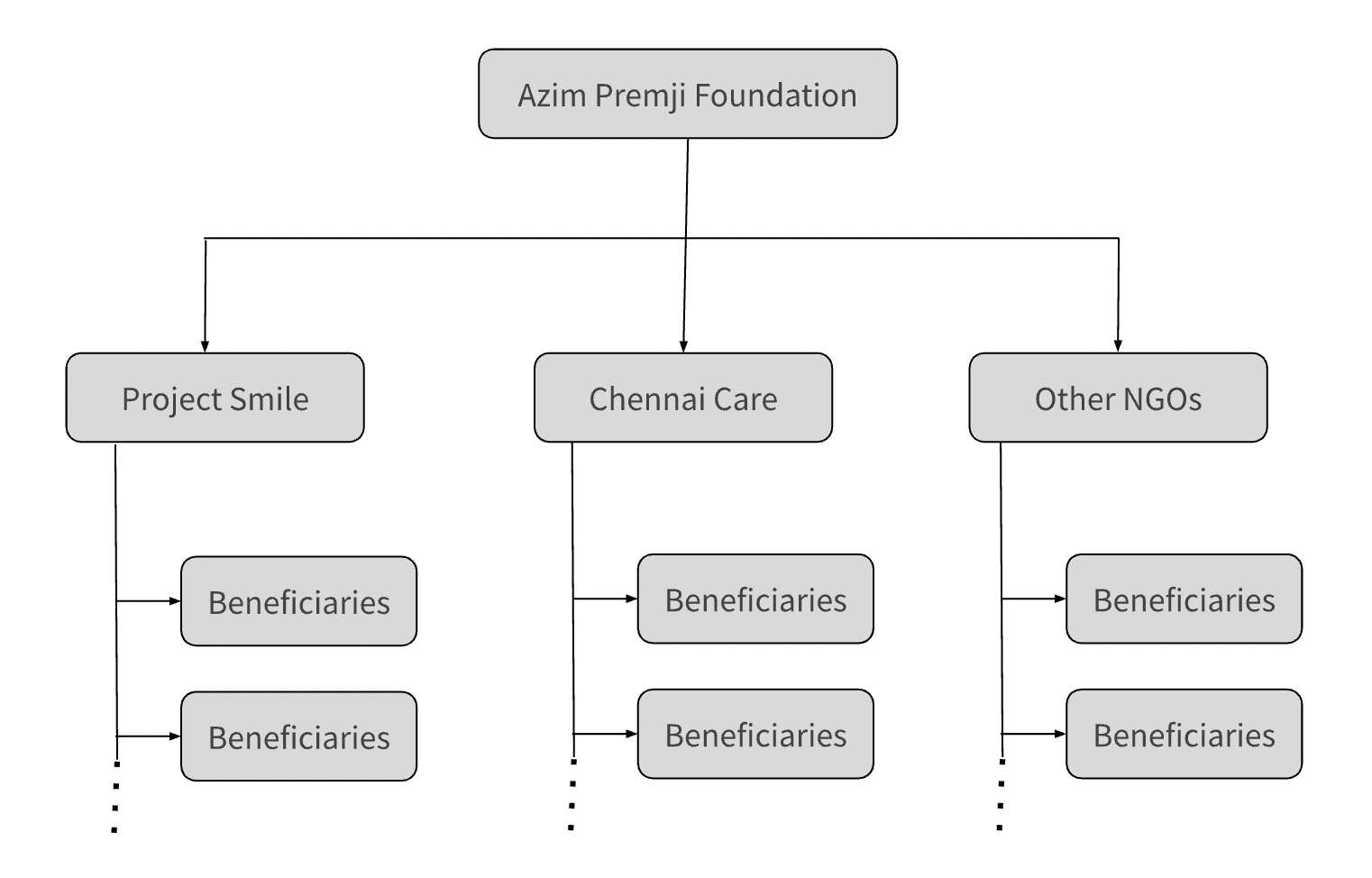
Getting Started
To learn about the ground reality of NGO operations, we visited the SmileCare office in the silicon valley of India, Bangalore.
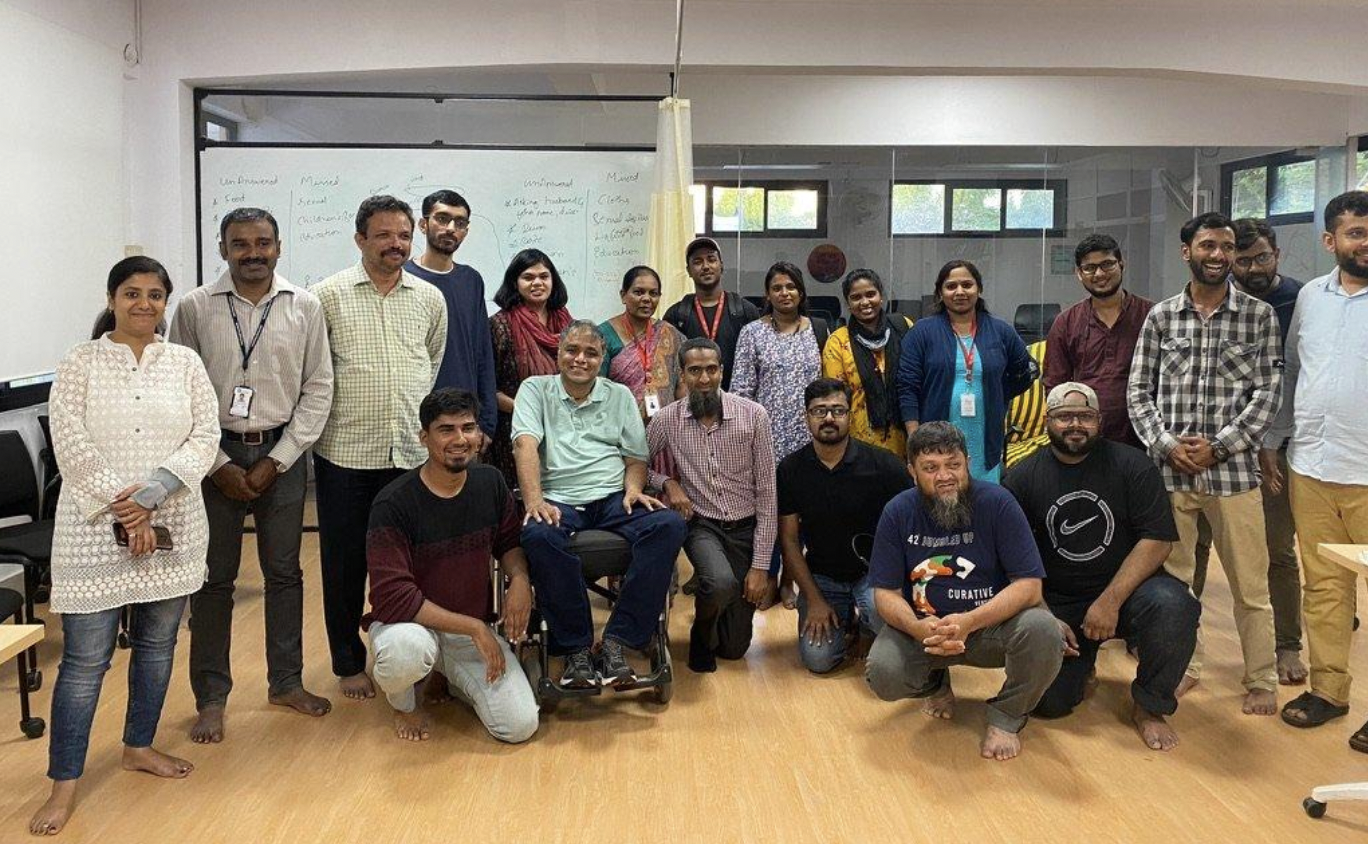
The initiative for the Homeless rescue and treatment is one of their recent initiatives. Given their terrific record in the space of meals distribution, India's biggest philanthropy called Azim Premji Foundation came in their support. Putting it in simple terms, the NGOs provide two broad categories of services to the Homeless.
- Incident / Rescue
- Pre-planned initiatives
Incident Support
This works like a typical ticketing system. A field worker or "Friends of Homeless" as they are called, (citizen volunteering their support) witnesses a case like an engineer mentioned above and contacts the Project Smile helpline. A Ticket is raised, with a unique ID. This ticket has a cycle, as a rescued person is provided multiple benefits across 3-6 months, till it is finally closed.
Ticket raised > Immediate Medical care > Transfer to temporary shelter > Educate / Unite to Family > Close a Ticket
During the lifecycle of a ticket, an assignment happens to different teams/individuals, who add data on a ticket. Convincing a homeless person (Beneficiary) to shift to a shelter is not a straightforward process. They simply don't trust you, and won't share any information or accept migrating to a safer place. Hence, an NGO has to extend its services by approaching them manually.
Pre-planned Initiative
These are some of the pre-planned initiatives offered by the Smilecare Foundation.
Food Service
An auto-rickshaw daily makes a round to deliver food packets to them. Also, there are shelters provided by other NGOs (Service Providers) where the Smilecare foundation delivers food packets on a daily basis. Below is a temple where we made a visit. Btw, Nice example of co-existence & Ganga-Jamuni tehzeeb.
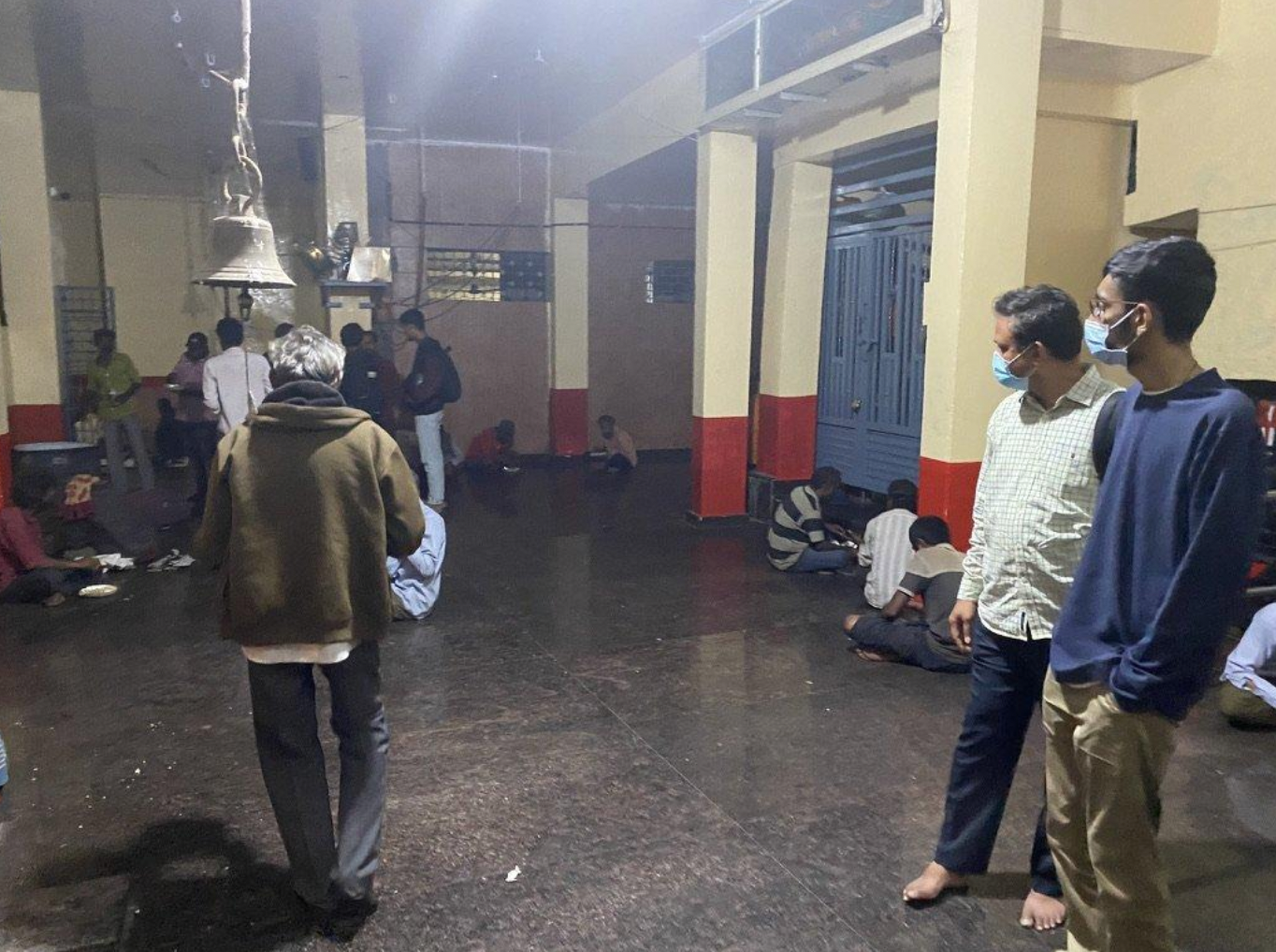
Healthcare Service
Once you build trust with the homeless, a standard medical test is administered on them. Surprisingly, a good majority are diagnosed with permanent diseases (like Diabetes) and even life-threatening diseases (like Tuberculosis). Project Smile has a battery of health professionals. They make a physical visit to Homeless people once in a fortnight, offering treatment and medicines.
SmileCare has a tie-up with HBS Hospital (another Service Provider) offering OPD and in-patient services to the homeless person. Below is the image of Dialysis care, where they offer free or discounted treatment to ~4000 people each month!
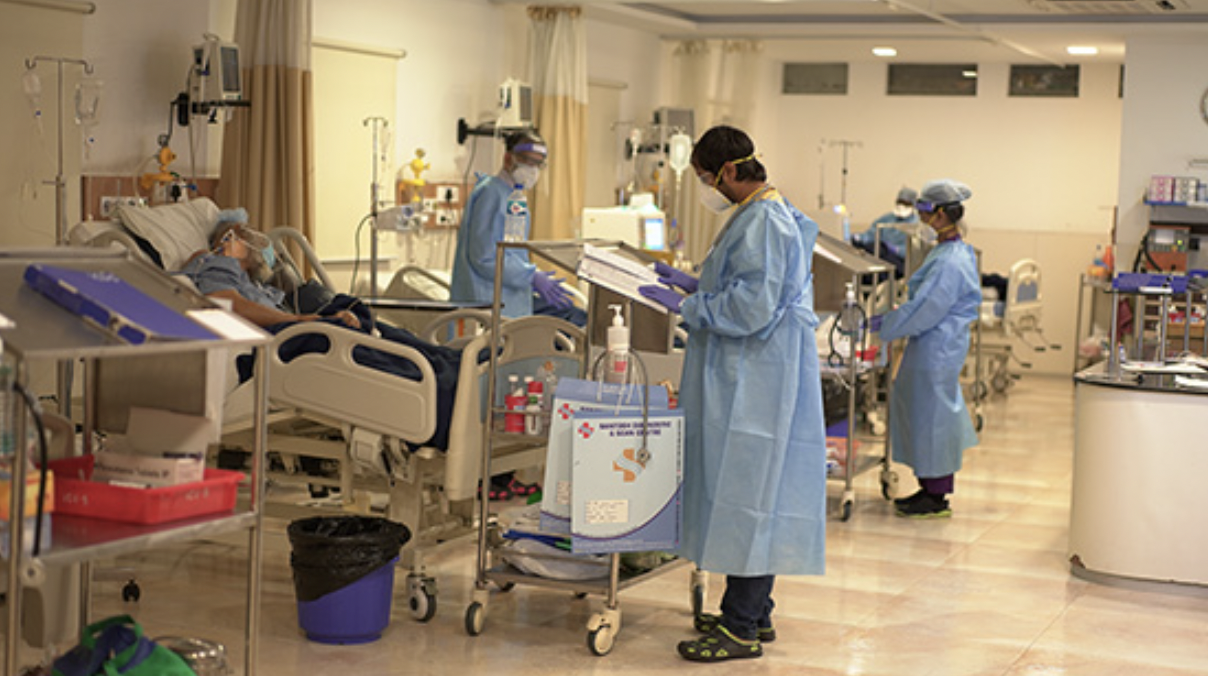
Shelter Homes
The Indian government mandates each sub-state to create shelter homes for the homeless. But hardly any homeless person is aware of this service. Project Smile Foundation offers the homeless person in getting them admitted into one of the shelters. These shelters provide temporary accommodation to a person for three months, but without food. There are other NGOs who send them food packets. In some cases, it can also be Project Smile, which has to track and deliver packets to shelters.
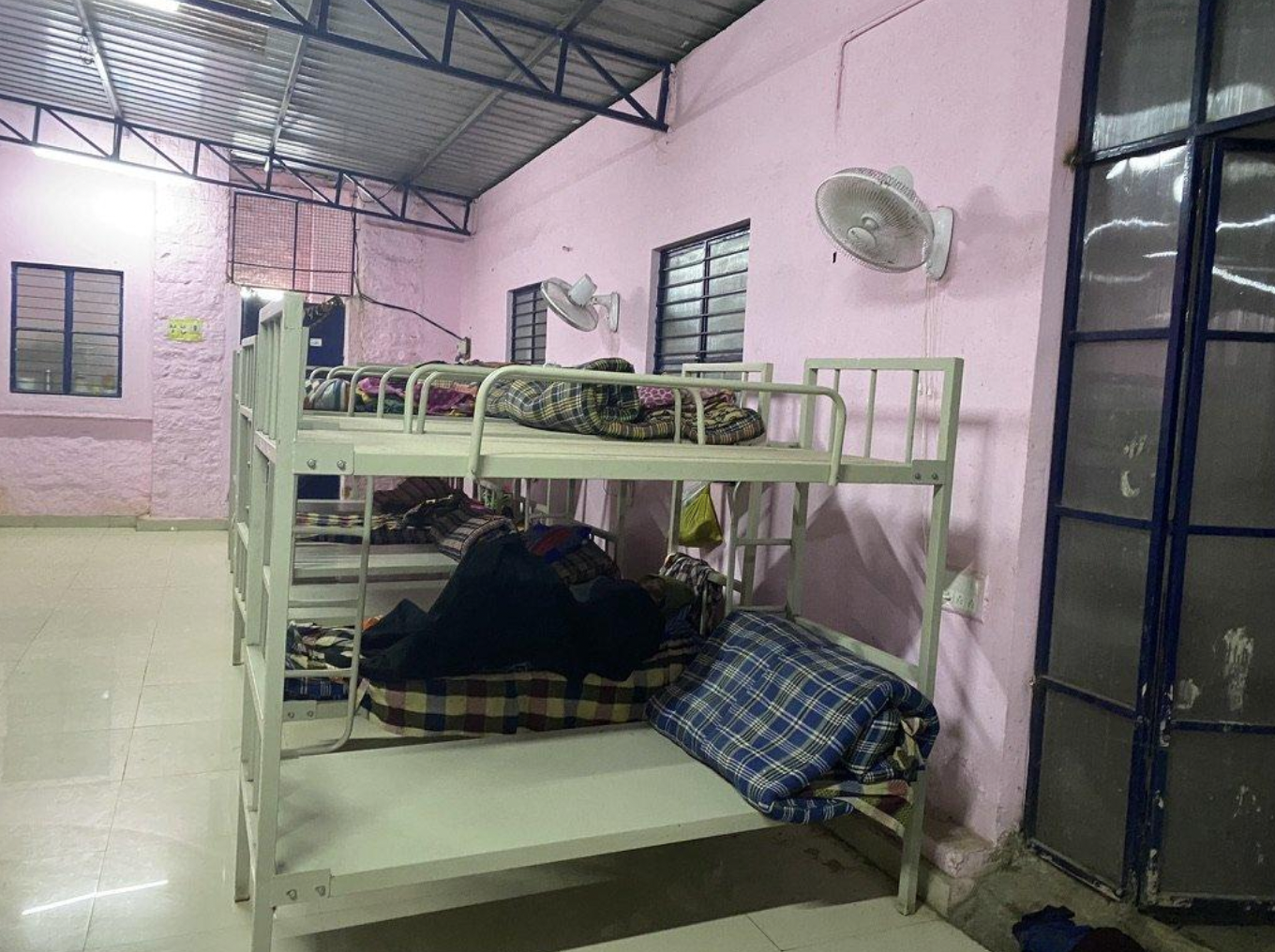
From the software perspective, they need to track a beneficiary, a shelter (Service Provider), and till the time he/she got admission there. And an alert which intimates them about expiry, so that they can arrange something else for them.
All of this was on day one of our visit to Project Smile.
Mapping Operations with Frappe Framework
On second day of our visit, Hussain and I initiated a session with some brief on the Frappe Framework. Based on the use-cases understood. We did some scribbling to define the schema of the app (masters and transactions). In the framework, we dived into all-powerful "DocType" mapping. We did this in their context and made master doctypes like Beneficiary, NGO, and Service Provider. Using these masters, we made a simple Ticket doctype, so that they understand how transactions can also be tracked.
Naturally, they were pleasantly surprised, and were confident of our delivery. We kept iterating on the agile implementation, based on the ground reality, as the project is also evolving with each passing day.
Mobile App
The Azim Premji Foundation's tech explained having a mobile screen that will allow field workers to fill in data about Beneficiary, Rescue Ticket, and Pre-planned Service delivered.
Since Frappe has a responsive UI, I am used to addressing mobile app needs by showing the responsive view of Frappe screens which adjust to the screen size of mobile or a tab. However, in this scenario, the mobile app offering quicker access and faster form filling could be a life saving feature.
Given that Hussain was going to drive this project, this demand was seen as a blessing in disguise. We already started thinking about the libraries and components we could use to deliver the mobile app. Following is Hussain, understanding of the mobile-app requirement from Azim Premji Foundation’s tech team.
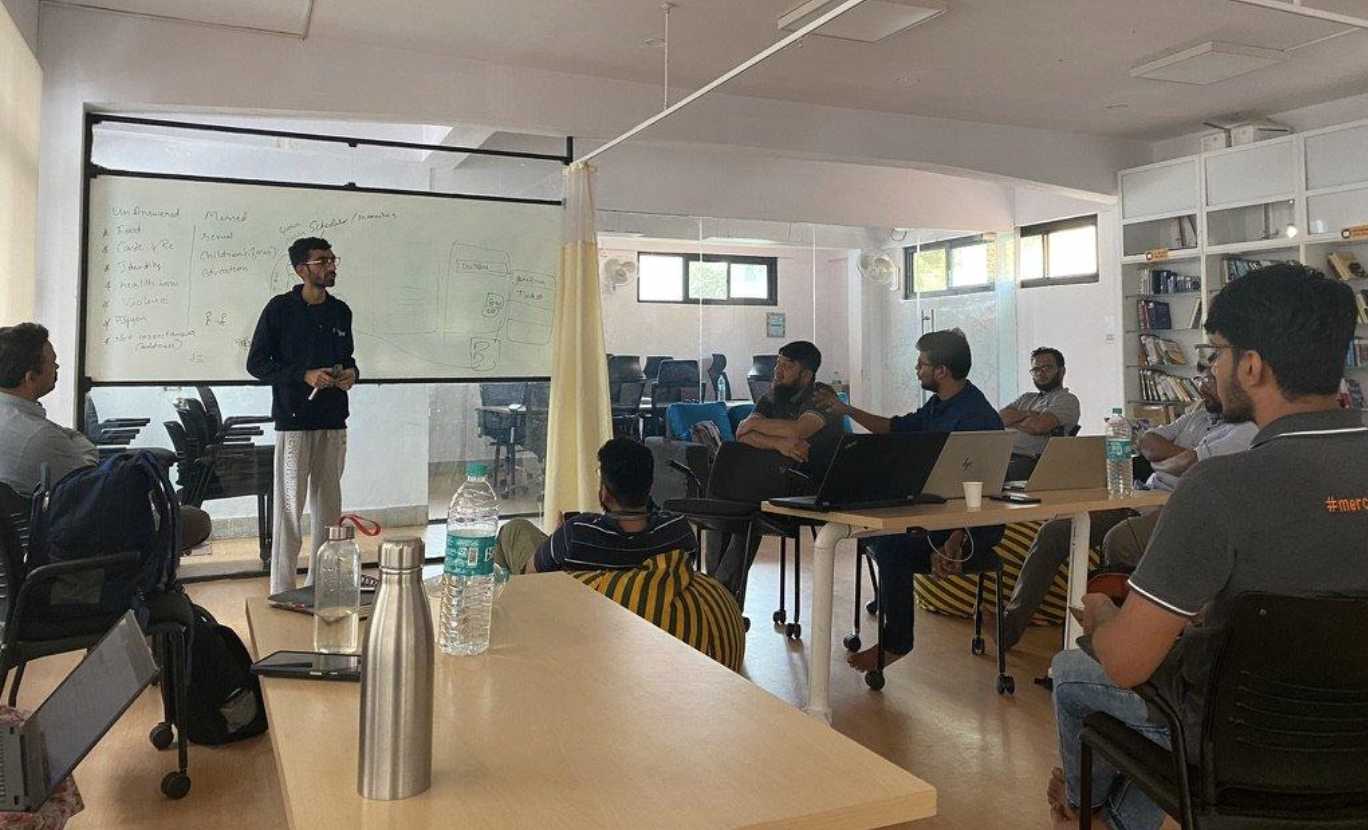
While closing the session, Project Smile and the Azim Premji Foundation's team agreed to assist us with specific form and field level requirements, permissions and workflows. When questioned about the app's expected arrival, the clichéd response was, "yesterday." It served as the perfect initial expectation.
Conclusion
The understanding of cause and emotions linked to the cause, made sure that this wasn't just another prospect visit. We weren't there for the typical requirement of understanding and delivering software. Thanks to direct one-on-one with stakeholders like the ground staff and homeless people, it helped us align with the cause on a much deeper level.
We could empathize with the beneficiaries who are often perceived as alcoholics by the world. However, the social workers saw them as lonely individuals who sacrifice their well-being and physical strength to provide for their families. They don't even have a decent mat to sleep on, so that same alcohol serves as a pain reliever (without justifying alcohol consumption). It helps them bear the freezing cold of the bare floor they sleep on, preventing them from freezing to death.
By the end of the second day, we departed with a profound sense of appreciation and respect for all the stakeholders involved in the rescue efforts for homeless people. These were individuals whom I previously ignored or showed no mercy towards. A heartfelt shout-out goes to the ground teams of Azim Premji Foundation and Smilecare Foundation, who are willing to get their hands dirty to feed thousands of homeless people. We left with the hope of making a positive contribution as a Frappe team to this noble cause. Fingers crossed!
